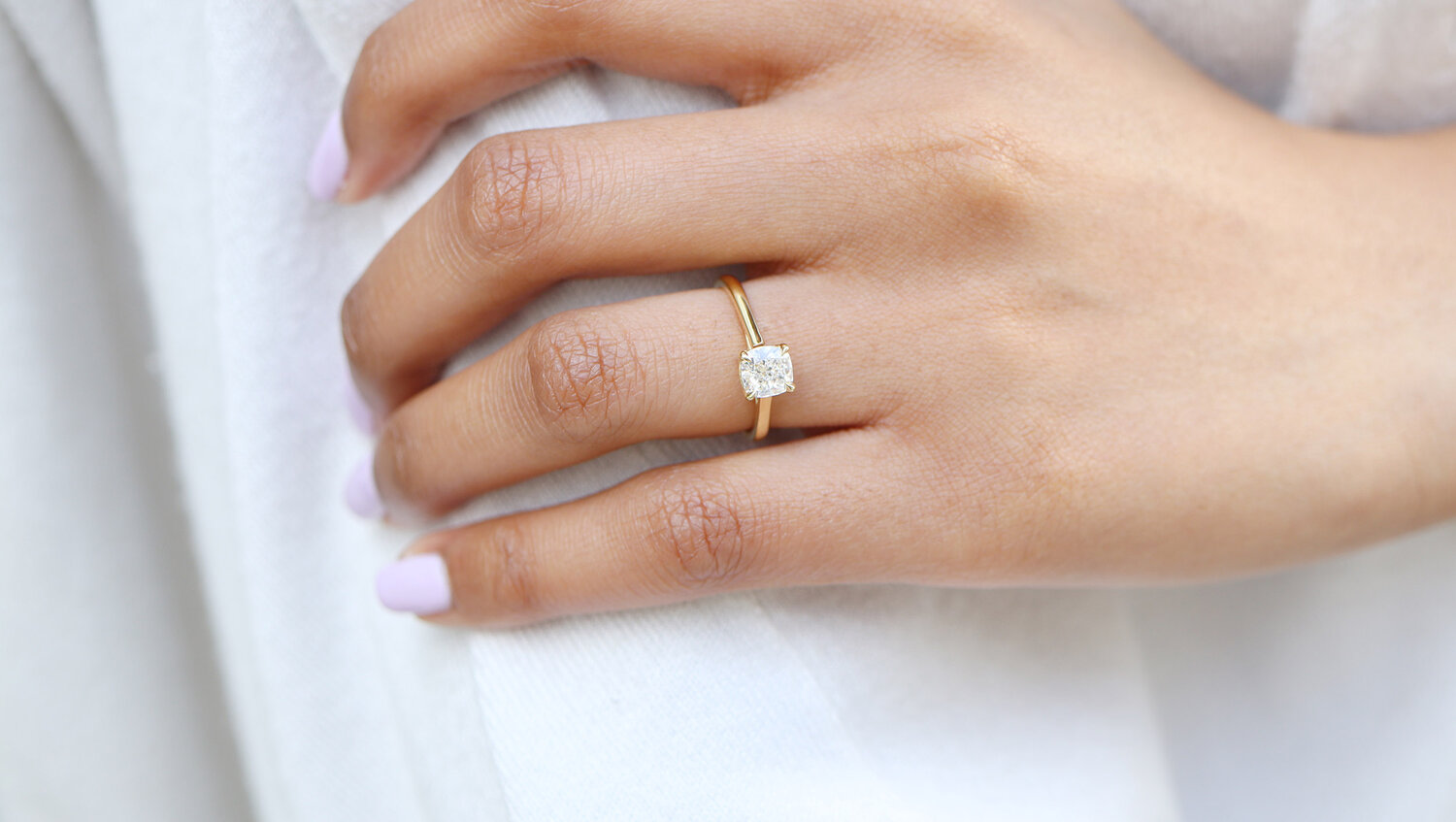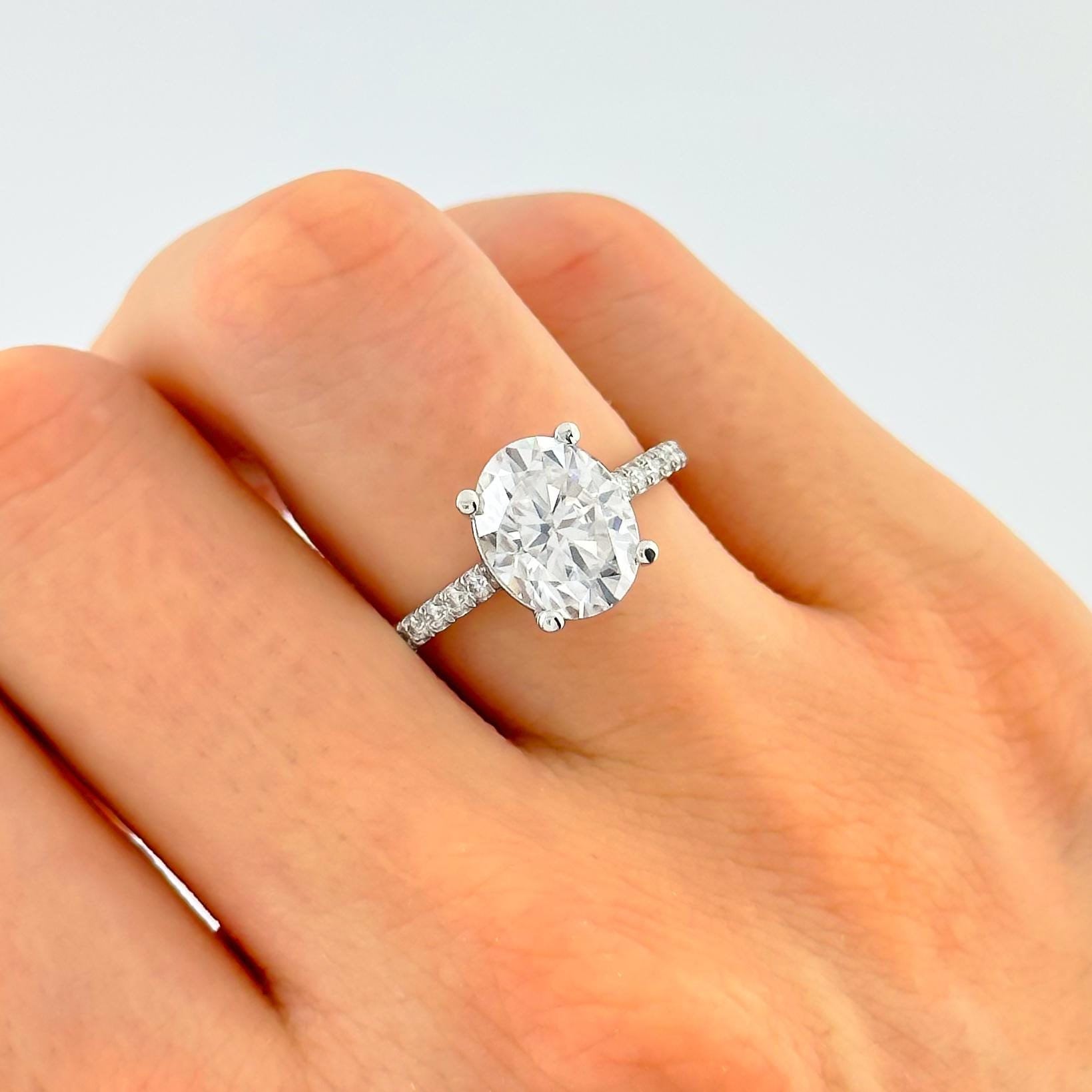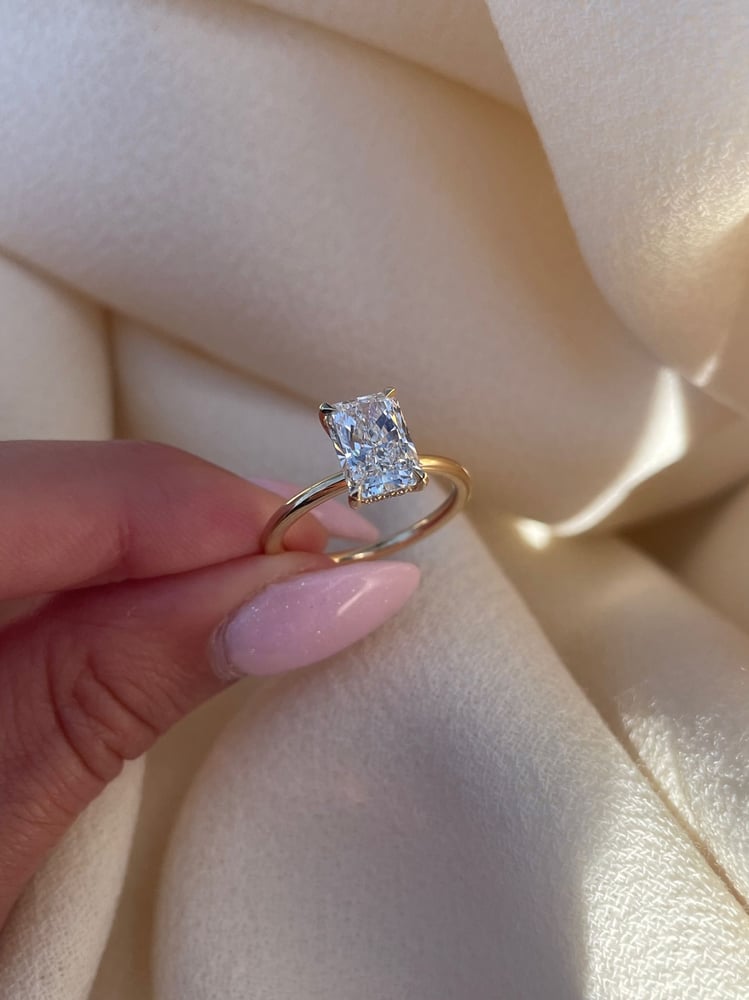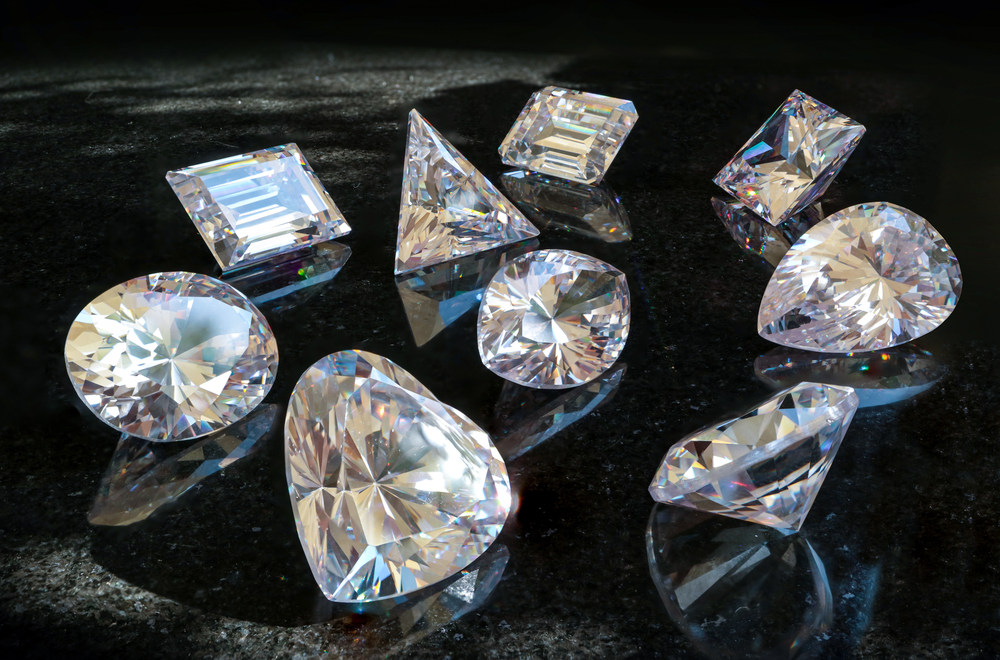The diamond industry has been forced to evolve in a world where sustainability and conscious consumerism are becoming more prevalent. Enter lab grown diamonds – a sustainable and ethical alternative shaking up the market. But what does this mean for the future of diamond prices? In this post, we’ll examine current market trends and make educated predictions on what lies ahead for lab-grown diamond prices – get ready for some eye-opening insights!
Table of Contents
What is a Lab-Grown Diamond?
There is no doubt that laboratory-grown diamonds are the future of the diamond market. After all, these diamonds are made in a controlled environment, without any environmental damage. This process also eliminates the need to mine diamonds from the earth, which has caused many environmental issues in the past.
However, some challenges must be overcome before lab-grown diamonds can truly take over as the go-to choice for diamond consumers. For example, prices for these stones remain quite high, despite recent price drops. Industry experts believe this could soon change as consumers become more familiar with these unique gems.
Types of Diamonds Grown in Laboratories
A few different types of diamonds can be grown in laboratories. The most common type is CVD or chemical Vapor Deposition. In this process, diamond crystals are grown on a substrate like silicon wafers. This method creates high-quality diamonds at lower costs than traditional methods like mining. Another common type of diamond growth is sputtering. In this process, an electric current propels metal atoms into the diamond lattice. This allows for creating smaller diamonds with higher purity levels than CVD methods.
Diamond Price Trends
With the market recovering from a record-breaking bubble in 2014, diamond prices are expected to remain stable soon. However, long-term trends may change as the market tightens and new diamond mines come online.
The current diamond market is highly concentrated; only 10 percent of global diamonds are mined from the ground. As a result, the price of diamonds attached to a specific mine or country can be very volatile, with short-term swings often exceeding 50 percent. This instability largely reflects great demand and supply shocks – when investors (mainly in China) or jewelers face unforeseen changes in their outlook; they rush to buy or sell diamonds accordingly.
One reason diamond prices have tended to vary so much is that it is difficult to predict which mines will produce high-quality diamonds in perpetuity. In the past decade, several new mines have come online. Still, there is no guarantee that these mines will continue to produce consistently high-quality diamonds over an extended period. It is also possible that some existing mines could suddenly run out of diamonds.
This unpredictability has two main consequences for the diamond market: first, it causes prices to swing widely as investors guess at where prices will go next; second, it discourages companies from investing too much money in one mine or country since they might not get their investment back even if the diamond yield remains high. For this reason, many analysts predict that the diamond market will become more stable over the next few years.
Factors Affecting Diamond Prices
Diamond prices have been on the rise for quite some time now, and a few factors are contributing to this increase. In this article, we will explore the reasons behind diamond prices and talk about what market trends predict their future.
One of the main reasons why diamond prices are on the rise is due to global demand. The diamond industry is expanding rapidly all over the world and this is resulting in an increased demand for diamonds. Additionally, investors are increasingly looking to invest in luxury items such as diamonds, which can provide them with better returns over time.
Another major factor driving up diamond prices is the changing global political conditions. Recent events such as Brexit have caused a lot of uncertainty in the markets, which has led to an increased demand for safe investments such as diamonds. This increased demand has resulted in higher diamond prices.
However, despite these rising prices, it is important to note that diamond prices are still relatively low compared to other precious gems such as sapphires and rubies. This indicates that there is still room for growth in the diamond market. Furthermore, many experts believe diamond prices could reach unprecedented heights shortly due to global economic growth and increasing luxury consumption by wealthy individuals worldwide.
Conclusion
It is evident that many different factors are driving the diamond market, and it will be interesting to see what trend prevails in the coming years. With technological advances, more jewelers are exploring Lab Grown Diamonds as an option for their customers. While this may present some challenges as production volumes ramp up, it is clear that there is a lot of potential for growth in this sector.

:max_bytes(150000):strip_icc()/labgrownlede-2b7540f7f7404558a08f1a555862f3d3.jpg)














